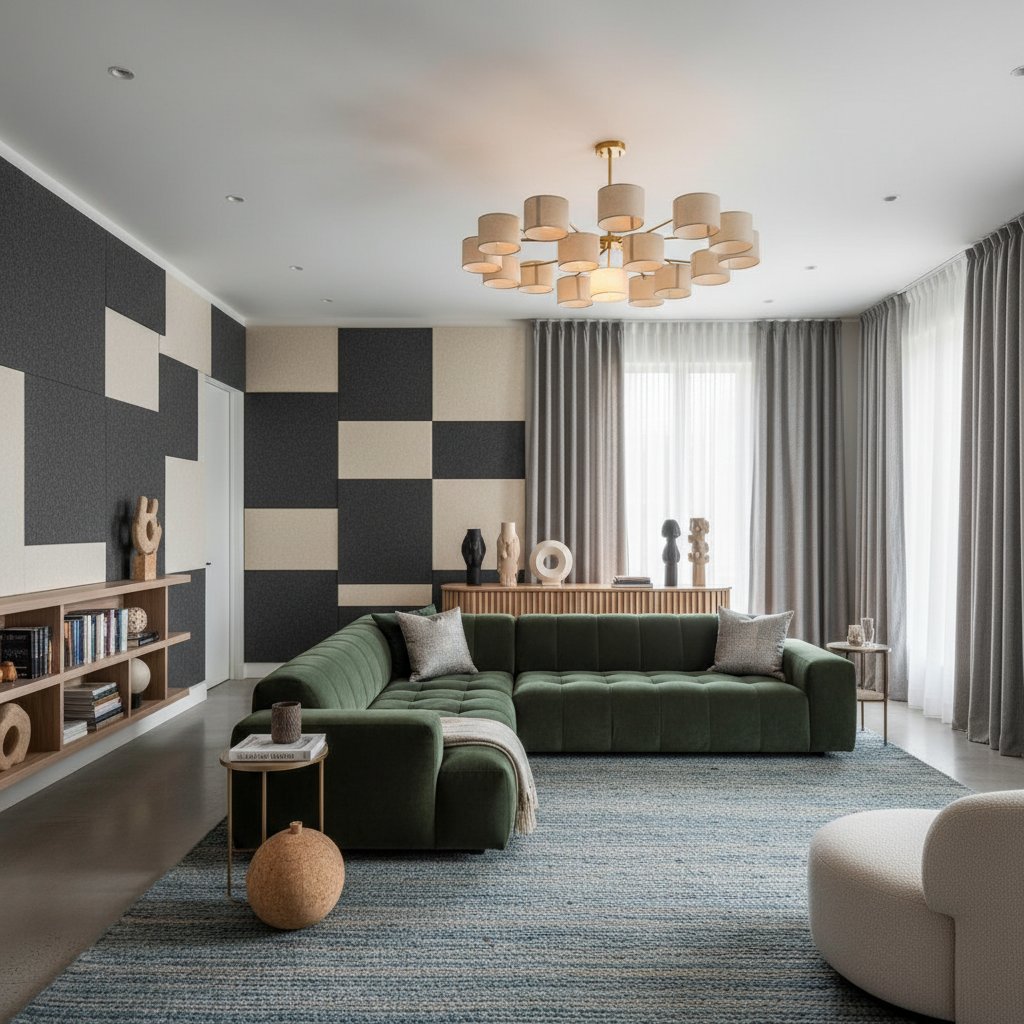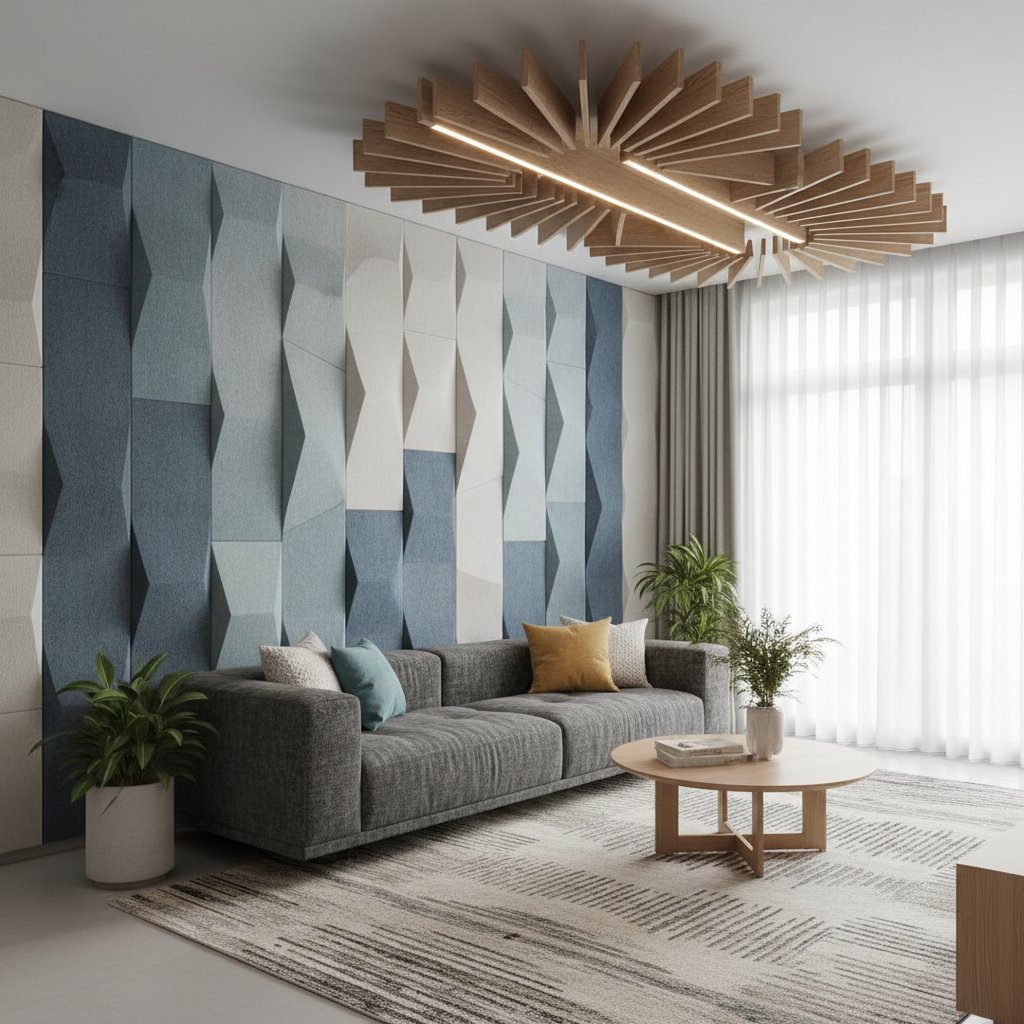Acoustic Panels: Stylish Solutions for Sound Control in Modern Homes
Picture returning home after a demanding day, eager to relax in the living room. Instead, echoes from footsteps, television audio, and conversations reverberate off the walls, disrupting the peace. Acoustic panels deliver an effective remedy, absorbing excess sound to foster a composed environment that maintains aesthetic appeal.
The Importance of Acoustic Comfort in Contemporary Living
Open-plan layouts, tall ceilings, and smooth surfaces define many modern residences. These elements promote spaciousness and natural light, yet they intensify sound reflection. Kitchen clatter or adjacent room music echoes persistently, turning vibrant areas into fatiguing ones.
Acoustic panels address this challenge directly. Positioned on walls or ceilings, they capture sound waves, minimize reverberation, and enhance audio clarity. Professionals incorporate them into home offices for better focus, media rooms for richer sound, and communal spaces for clearer dialogue.
Essential Benefits of Acoustic Panels for Homeowners
These panels integrate seamlessly into design schemes, serving as both functional tools and visual accents. They avoid the appearance of utilitarian add-ons, instead contributing to the overall style. Choices range from linen-covered panels in neutral tones to slatted wood for a natural vibe or patterned versions that mimic artwork.
Well-placed panels promote concentrated work, restorative rest, and meaningful interactions. Controlled acoustics refine the sensory experience, leading to heightened enjoyment of the space. Residents often note improved well-being when auditory elements harmonize with visual ones.
Design Varieties and Ideal Home Applications
Homeowners enjoy diverse acoustic panel styles tailored to specific needs. Each type absorbs sound effectively while aligning with decor preferences. Below are key options and their optimal settings:
-
Fabric-Wrapped Panels
Soft fabrics in various hues and weaves offer versatility for any interior palette, from sleek contemporary to cozy classic. These panels excel in bedrooms for gentle sound diffusion, conference nooks for reduced distractions, or corridors for added coziness and layered visuals. -
Wood Slat Panels
Arranged in precise lines, these introduce warmth and contemporary edge through natural grains and finishes. They channel sound absorption while establishing directional flow in the room. Deploy them in home offices to inspire productivity, creative studios for balanced ambiance, or expansive living zones to complement organic motifs. -
Printed or Custom Art Panels
Infuse personal flair with images, motifs, or bespoke graphics printed on absorbent cores. These serve dual roles as acoustic treatments and focal art pieces. Install in lively family rooms or inspiration-driven workspaces to reflect individual tastes without acoustic trade-offs. -
Ceiling Baffles and Clouds
Suspended or fixed overhead, these tackle vertical sound paths in lofty or broad rooms. They intercept echoes from above, preserving wall space for other uses. Apply in formal dining areas for intimate gatherings or open lofts for uniform quietude.
Planning an Effective Acoustic Panel Installation
A thoughtful approach ensures panels perform optimally and integrate smoothly. Start with evaluation to pinpoint issues, then proceed methodically. These steps guide the process:
-
Evaluate Acoustic Problem Areas
Walk through the home and note spots where sound lingers or overwhelms, such as vast empty walls or vaulted ceilings that bounce audio indiscriminately. -
Determine Required Coverage Area
Aim for 25 to 35 percent treatment of sound-reflecting surfaces to curb echoes noticeably. For dedicated spaces like recording areas or cinema setups, target 50 percent or higher to achieve professional-grade control. -
Choose Appropriate Materials and Finishes
Select based on room aesthetics; earth tones soothe relaxation zones, while vibrant accents invigorate dynamic areas. Sample materials in ambient light to verify tonal matches and textural compatibility. -
Strategize Panel Positions
Align panels at typical ear height or facing primary noise origins for peak efficiency. Overhead options work best over seating clusters or playback systems to capture descending sound waves. -
Opt for Professional Assistance or Guided Self-Installation
Simpler panels adhere via strong tapes, but complex setups demand sturdy frames. Consult experienced installers familiar with acoustic dynamics and design integration if DIY confidence wanes.
Practical Factors: Cost, Safety, and Project Timeline
Projects scale to fit different financial plans. Standard fabric installations range from ten to twenty dollars per square foot, including labor. Elaborate wood or artistic customizations climb to forty dollars or beyond, with overhead configurations adding costs for rigging and adjustments.
Most single-room transformations finish in one to two days, minimizing disruption. Prioritize non-toxic, low-emission adhesives and cores to safeguard air purity. Ensure fixings match substrate materials, such as anchors for drywall or masonry plugs for stone walls.
Regulatory hurdles seldom arise for interior acoustic work, though experts verify adherence to codes in condominiums or attached dwellings. In damp climates, choose panels with vapor barriers to prevent degradation or microbial growth.
Crafting Balanced Spaces Through Acoustic Design
Acoustic panels enable tailored havens, from quiet corners for reading to precise zones for entertainment or work. They elevate both sight and sound, turning potential chaos into intentional calm. Thoughtful selection and arrangement yield environments where every element supports well-being.
Reimagine your living areas with these versatile tools. Engage local specialists to curate and fit panels that realize your ideal blend of form and function, delivering enduring peace and elegance.



